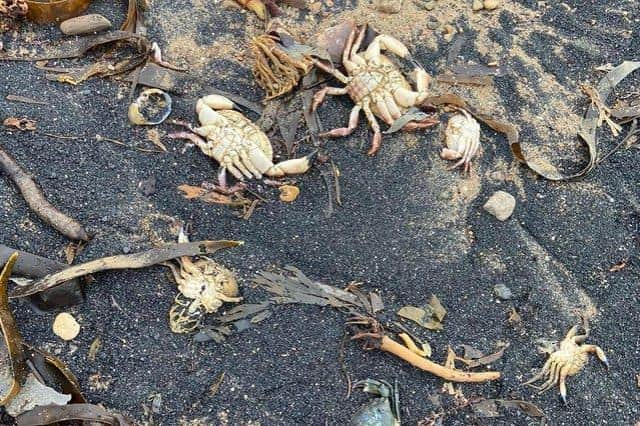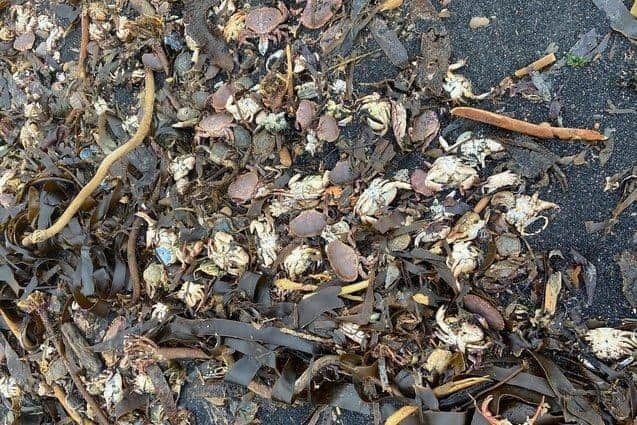Yorkshire fishermen desperate for answers as mystery surrounds crab and lobster deaths


The dead crustaceans have washed ashore on the Yorkshire and North East coasts over the last four months, and crews claim they are struggling to make a living because catches are so sparse.
Many fishermen believe dredging, done as part of the Teesside Freeport project, is to blame. But the Department for Environment, Food & Rural Affairs (Defra), which is leading the inquiry, has ruled this out and said samples of dredge material are required to meet the highest international standards before it is disposed of at sea.
Advertisement
Hide AdAdvertisement
Hide AdThe Environment Agency has also said the deaths were not a result of chemical pollution, sewage leaks, undersea cabling or seismic survey activity, but the cause has not been established.


Marine biologist Joe Redfern said there is “no doubt” that dredging is releasing toxic sediments, as pesticides, agricultural waste and other harmful substances were dumped into the River Tees in the 1970s.
"Another question is whether that's caused all the deaths. What they have unearthed and the sediment they're digging around in contains some harmful chemicals,” he said.
"There are people whose whole livelihoods depend on this healthy environment and they have been shepherds of that environment for generations.
Advertisement
Hide AdAdvertisement
Hide Ad“Obviously they are going to be concerned when that's been impacted and there are no answers coming from the agencies, who are trusted to investigate it openly and honestly.
"When you're not getting any answers from them, you've got no option but to speculate.
"We need them to be as transparent as possible, speak to the industry more and listen to what people are saying within the industry. I think the fishing community know a lot more than they're given credit for."
Earlier this week, it was suggested that an algal bloom may have caused the deaths but Mr Redfern said that is unlikley.
Advertisement
Hide AdAdvertisement
Hide AdHe said: "People know when algal blooms come in - you can see it in the water. It's not really the right time of year because the temperature is too low to have strong algal bloom."
Defra said the investigation is ongoing and it is engaging with local fishermen.
George Lamplough, a fisherman from Whitby, said this mysterious event has been “catastrophic” for the industry.
He added: “I haven’t made a wage in weeks. Things are getting desperate for us. It is impossible to go to sea, take the inherent risks and, at the end of the week, end up with less in the bank than before.”
Advertisement
Hide AdAdvertisement
Hide AdBarrie Deas, chief executive of the National Federation of Fishermen’s Organisations, said: "This is very serious for the vessels that are affected.
“The fishermen are very anxious to find the solution and this is having a major impact on their livelihoods. So far, we’ve been talking to the scientists and we’ve asked local MPs to ask parliamentary questions to raise the profile of the issue.”
